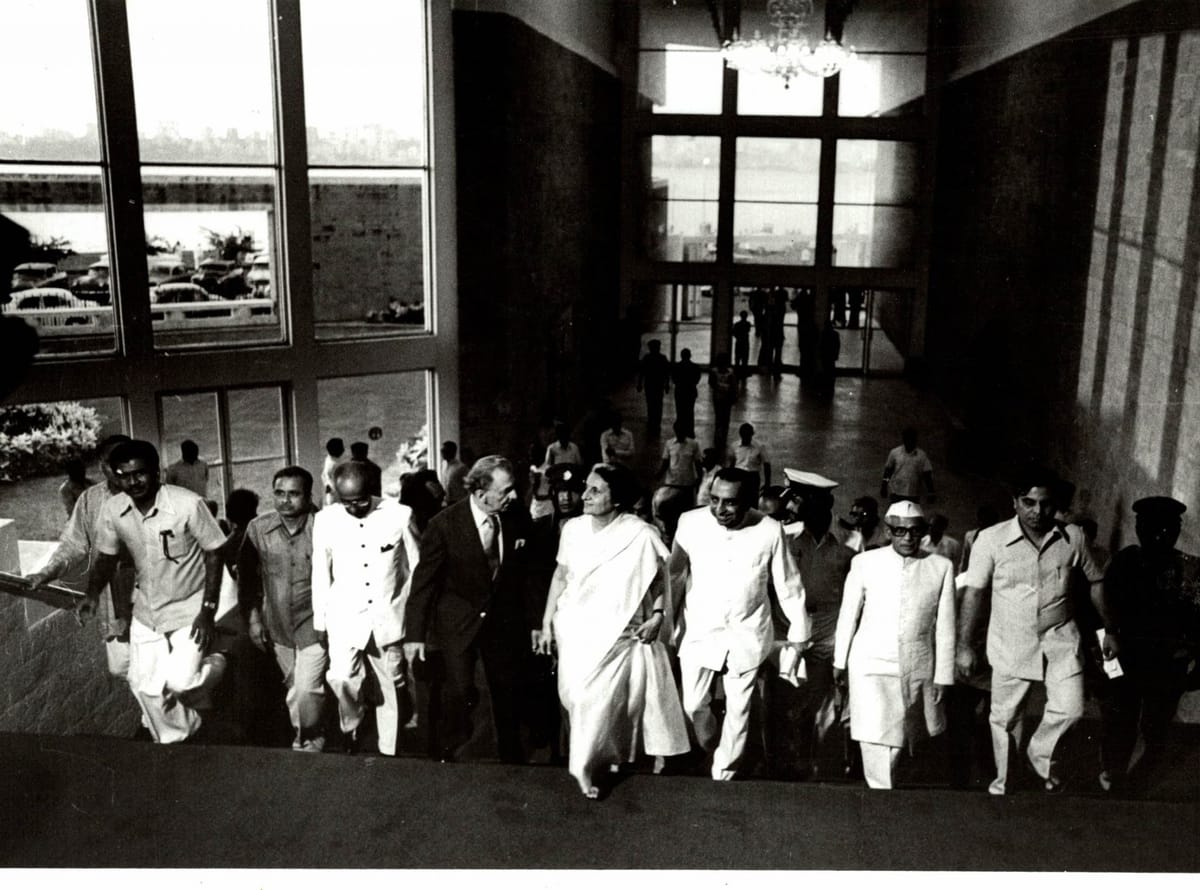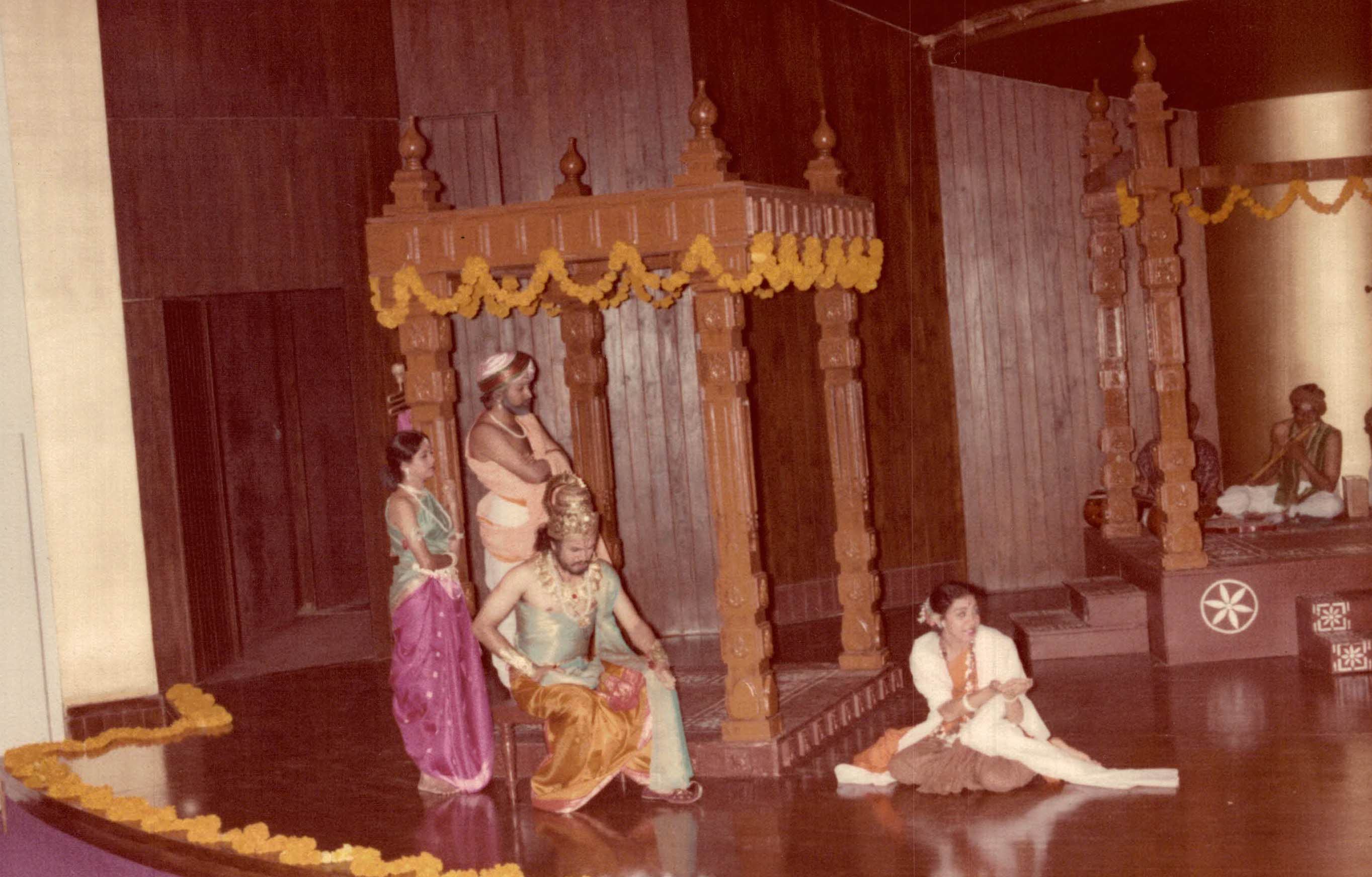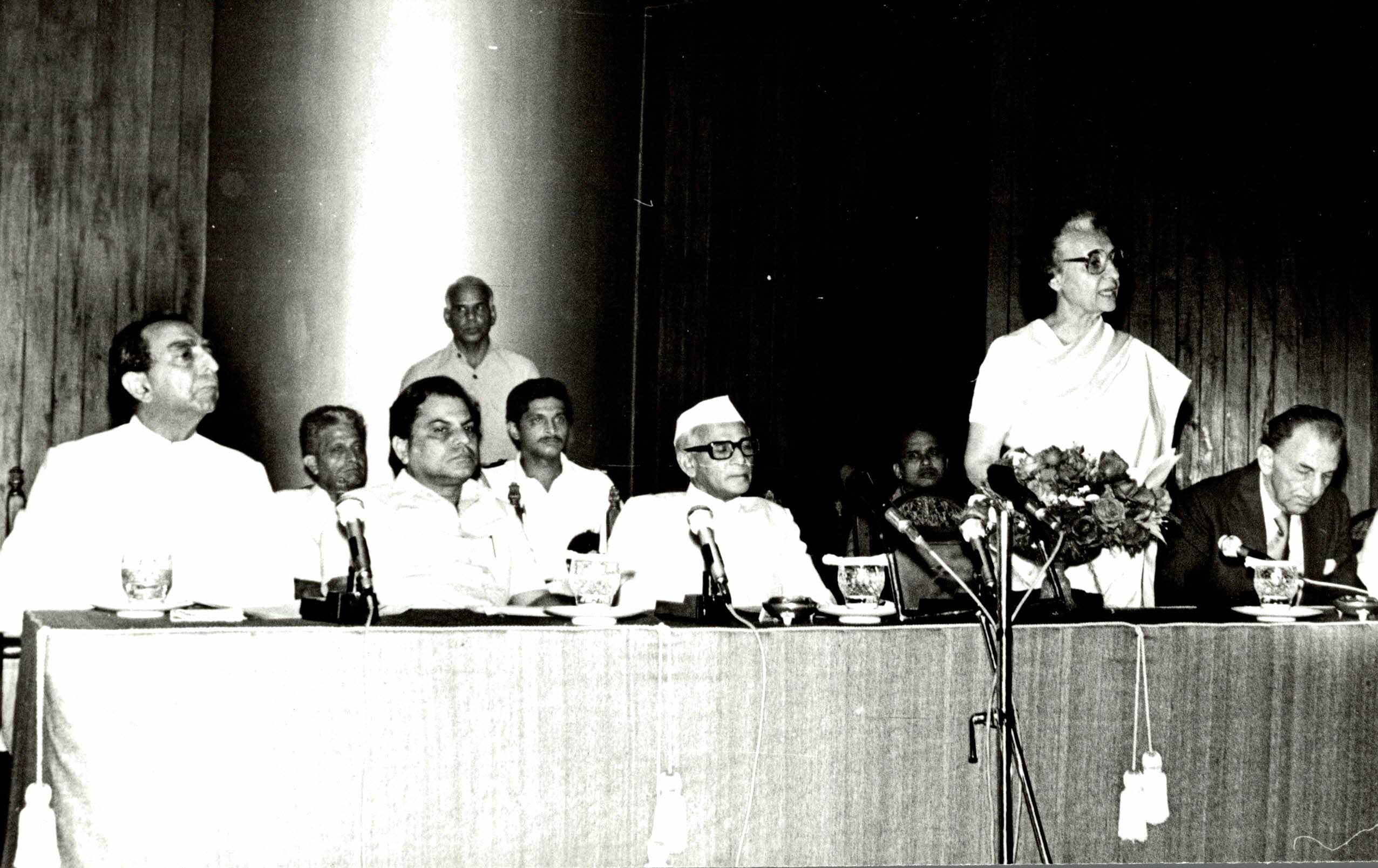The Performing Arts Pantheon

A nostalgic look back at the festival of music, dance and drama that was held immediately after the inauguration of the Tata Theatre.
A nine-day festival of music, dance and drama was organised from 11th October, 1980 to mark the inauguration of the Tata Theatre. Immediately after the formal inauguration, which included Prime Minister Indira Gandhi, two invocatory compositions were sung by M.S. Subbulakshmi, and her daughter, Radha. Amidst applause, the stage then rotated for the first time after the formal opening of the theatre for a brief programme in which Bismillah Khan played an evening melody on the ‘shehnai’ Then, the stage rotated once again – and to the audience, this smooth rotation of the stage with its walls, its hooded ceiling, seemed spectacular. Yamini Krishnamurti made her entry and presented the traditional repertoire with rare precision, grace and poise, and eloquent stances. The proceeds from the sale of tickets for the concert went to the Prime Minister’s National Relief Fund.

The Marathi version of Kalidasa’s Shakuntala, produced by the Goa Hindu Association and directed by Vijaya Mehta, was presented in the Tata Theatre on the second day of the inaugural festival. The scenic design was based on the concepts of Bharata’s Natyashastra. The scenery remained unchanged through the two hours of the play but, as the play progressed, it became elastic and fluid, denoting at times a shady tree or a pillar or a chariot. The illusion of a chariot chase through the forest, or the king’s journey across the sky came alive with varied rhythms and simple lyrical melodies, played and sung by the musicians, to which the actors lent their bodies with grace of movement. The play, with action in all parts of the semi-circular stage and variation in the pitch, strength and colour of sound, proved to be a very good test for the acoustics of the auditorium. Those who believed that sound perspective could only be achieved by placement and control of microphones were surprised to find that none were used, and there were many who felt that the Tata Theatre was the best venue for such a play. The standing ovation at the end of the performance overwhelmed the cast.
On the third day of the Festival, the 20-member troupe from the Azerbaijan State Puppet Theatre presented two plays, Djungush and Meshadi Ibad. The music, in its melodic contours, had similarity with the folk music of North-West India. An American group, coming right after the Soviet production, gave the whole festival an international start. On 14th October, the fourth day of the festival, bluegrass and country music from the United States was presented by Buck White and the Down Home Folk, D.L. Menard and the Louisiana Aces, John Jackson and Ricky Skaggs.

On 15th October, Subbulakshmi, without the mediation of electronics, sang for full three hours with absolute dedication and unparalleled mastery. Mogubai Kurdikar whose music, like rare wines, has acquired a very special quality for connoisseurs, was featured on 16th October, the sixth evening of the festival. Birju Maharaj’s programme on 17th October being delayed by the cancellation of an IAC flight from Delhi, gave the waiting audience an opportunity to enjoy a performance by Maharashtra’s senior and much admired Kathak exponent, Damayanti Joshi. Maharaj began his recital at 9.30 p.m. but the audience that had assembled since 7 p.m. was still asking for more when he finished a little after 11 p.m. It was Maharaj who said, at the end of his performance, that in the Tata Theatre a temple had been built for performing artistes.
The Gulbenkian Orchestra from Portugal played on the last two evenings, the programme chiefly consisting of works by Haydn, Mozart, Beethoven and Schubert. There was thunderous applause and encores. The inclusion of an orchestra from Portugal, along with ensembles from the U.S.A. and the U.S.S.R., made the festival a memorable international event.
This piece was originally published by the National Centre for the Performing Arts, Mumbai, in the October 2019 issue of ON Stage – their monthly arts magazine.





